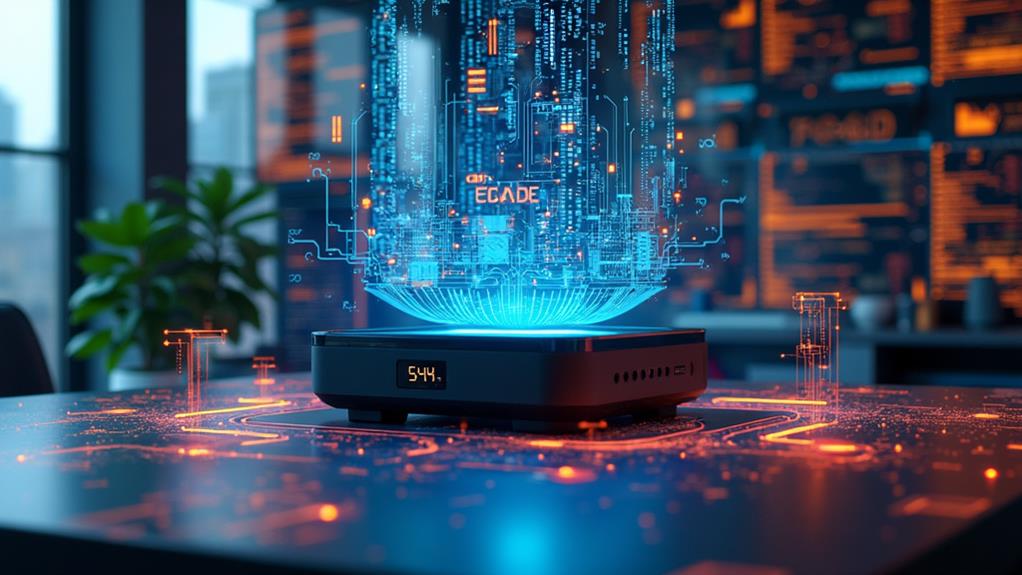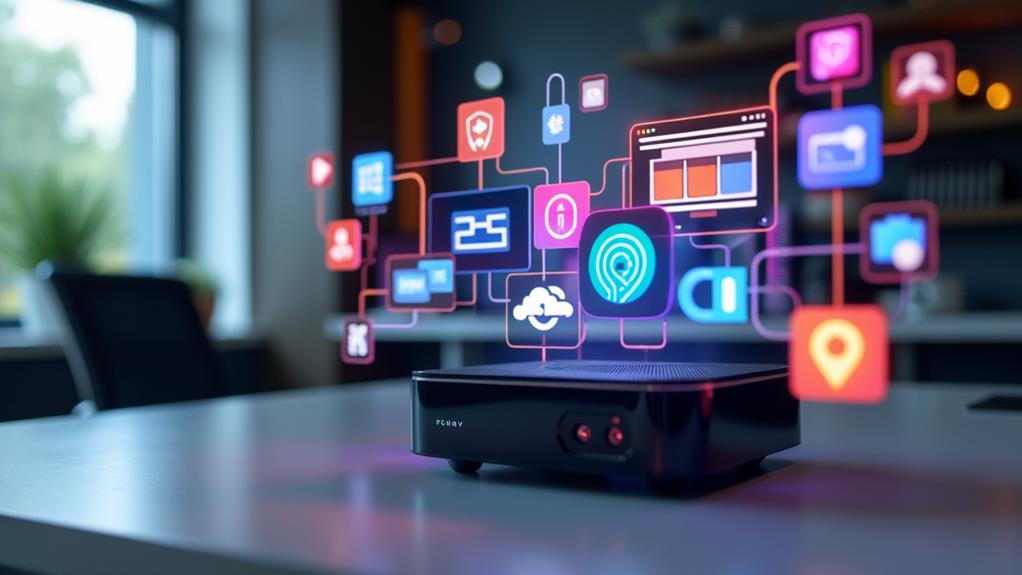



Imagine being able to relive the nostalgic joy of playing your favorite retro games, but this time on a compact and portable mini PC. With advances in technology, the possibility of playing classic games on a small device seems within reach. But can you really experience the same level of entertainment and nostalgia on a mini PC? In this article, we explore whether it is possible to play retro games on a mini PC and what you need to consider before immersing yourself in a trip down memory lane.
Can You Play Retro Games On A Mini PC?
Introduction
If you’re a fan of nostalgic gaming, you may be wondering if it’s possible to play retro games on a mini PC. The good news is that it is absolutely possible! Mini PCs have become increasingly powerful and capable, making them a fantastic option for retro gaming enthusiasts. In this article, we will explore the world of retro gaming on mini PCs, including understanding what mini PCs are, what retro games are, popular retro game consoles, hardware requirements, operating systems, emulators, legalities, installation process, accessing game ROMs, controllers, optimizing gameplay, and potential issues that may arise.
Understanding Mini PCs
Firstly, let’s clarify what exactly a mini PC is. A mini PC is a compact computer designed to offer versatility, portability, and often a smaller footprint compared to traditional desktop computers. While they may be small in size, mini PCs are packed with features and can handle a wide range of tasks, including retro gaming.
Mini PCs come in various forms and configurations. Some models are pre-built with specifications tailored for specific purposes like retro gaming, while others offer the flexibility to be customized to meet your specific needs. These computers are typically powered by Intel or AMD processors, solid-state drives (SSDs) for fast storage, and have sufficient RAM to handle retro games without any issues.
What Are Retro Games?
Retro games refer to video games that were popular in the past but are no longer actively developed or supported by the original manufacturers. These games typically have a nostalgic appeal, harkening back to the gaming experiences of previous generations. Retro games can include iconic titles from consoles like the Super Nintendo Entertainment System (SNES), Sega Genesis, Atari, PlayStation 1, and many more.
Popular Retro Game Consoles
Before diving into how you can play retro games on a mini PC, let’s explore some of the most popular retro game consoles. These consoles brought joy to millions of gamers worldwide and have a vast library of classic titles. Some notable examples include:
- Super Nintendo Entertainment System (SNES)
- Sega Genesis
- Nintendo Entertainment System (NES)
- PlayStation 1 (PS1)
- Atari 2600
These consoles, among others, had a significant impact on the gaming industry and laid the foundation for the games we enjoy today.
Mini PC Hardware Requirements
To run retro games on a mini PC smoothly, it’s important to ensure that your mini PC meets the necessary hardware requirements. While the specific requirements may vary depending on the games you want to play, there are some general guidelines to keep in mind.
A mini PC with a modern processor, such as an Intel Core i5 or Ryzen 5, along with a dedicated graphics card, will provide the horsepower needed for most retro games. Additionally, having at least 8GB of RAM and sufficient storage space, preferably an SSD, will enhance your gaming experience.
Operating Systems for Mini PCs
Mini PCs can run various operating systems, but the most common choices are Windows and Linux. Windows is a popular choice as it provides compatibility with a wide range of games and software. Linux, on the other hand, is known for its stability and open-source nature, making it a favorable option for those who prefer customization and flexibility.
When it comes to retro gaming on a mini PC, both Windows and Linux offer excellent options for running emulators and accessing retro game ROMs. The choice between the two ultimately depends on your personal preferences and the specific emulators or games you plan to use.
Emulators for Retro Gaming
Emulators are software programs that mimic the hardware of retro game consoles, allowing you to play their games on modern devices like mini PCs. A vast library of emulators is available for various retro game consoles, and many of them are compatible with mini PCs.
Some popular emulators for retro gaming include:
- RetroArch: A versatile emulator that supports multiple consoles and provides a user-friendly interface.
- Dolphin: Specifically designed for GameCube and Wii games, Dolphin offers excellent compatibility and performance.
- ePSXe: An emulator dedicated to PlayStation 1 games, providing an authentic gaming experience.
- MAME: Perfect for arcade enthusiasts, MAME emulates a wide range of classic arcade cabinets.
These emulators, along with many others, offer a seamless retro gaming experience on mini PCs.
Legalities of Retro Game Emulation
Before diving deeper into the process of playing retro games on a mini PC, it’s essential to briefly touch on the legalities surrounding retro game emulation. Emulating games that you do not own is generally considered illegal and a violation of copyright laws. It’s important to respect the intellectual property rights of game developers and publishers.
However, there are exceptions and legal avenues for playing retro games on emulators. For instance, if you own the original games and create your ROMs from those cartridges or discs, it is typically considered legal. Additionally, some game developers release their games for free or as abandonware, which can be legally emulated and played.
It’s crucial to research and understand the specific laws and regulations in your country or region before engaging in retro game emulation.
Installing Emulators on a Mini PC
The process of installing emulators on a mini PC is relatively straightforward and varies depending on the chosen operating system. In general, you can follow these steps:
- Download the emulator software from a reputable source.
- Install the emulator on your mini PC following the provided instructions.
- Configure the emulator settings, including graphics, audio, and input options.
- Download and install any necessary plugins or BIOS files if required by the emulator.
- Locate your legally obtained game ROMs and load them through the emulator’s interface.
Once you have completed these steps, you should be ready to enjoy retro games on your mini PC.
Accessing Retro Game ROMs
Retro game ROMs are digital copies of the original game cartridges or discs that can be played through emulators. While the legalities mentioned earlier must be considered, obtaining game ROMs can be done through various means.
One option is to rip the ROMs from your own game cartridges or discs using specific programs or devices. This ensures that you are using legally obtained copies of the games you own.
Another option is to explore reputable online sources that offer legally accessible retro game ROMs. Some websites provide a wide selection of classic games, often with the permission of the original copyright holders.
Regardless of the method you choose, it’s important to ensure that you are acting within the boundaries of the law and respecting intellectual property rights.
Controllers for Retro Gaming on Mini PCs
To truly immerse yourself in the retro gaming experience on a mini PC, it’s highly recommended to use controllers that resemble the original console’s controllers. While mini PCs typically support a variety of input devices, using a controller will provide a nostalgic feel and enhance the gameplay.
You can connect various controllers to your mini PC, including USB gamepads designed specifically for retro gaming. Some emulators even support wireless controllers for added convenience.
Before purchasing a controller, ensure it is compatible with your mini PC and the specific emulator you plan to use. Many retro-inspired controllers are available in the market, designed to replicate the look and feel of the original console controllers.
Optimizing Retro Games on a Mini PC
To ensure a smooth and enjoyable retro gaming experience on your mini PC, there are a few optimization tips to keep in mind:
- Update Graphics Drivers: Keeping your graphics drivers up to date will ensure optimal performance and compatibility with emulators.
- Adjust Resolution and Graphics Settings: Experiment with different resolutions and graphics settings within the emulator to strike a balance between visual fidelity and performance.
- Disable Unnecessary Background Applications: Closing any unnecessary programs running in the background will free up system resources and improve overall performance.
- Consider Overclocking: If your mini PC supports it, overclocking the CPU or GPU can provide a boost in performance for more demanding games.
By implementing these optimizations, you can maximize your mini PC’s potential for retro gaming.
Potential Issues with Retro Gaming on Mini PCs
While playing retro games on a mini PC is generally a smooth experience, there are a few potential issues you may encounter:
- Compatibility: Some emulators may have compatibility issues with certain games, leading to glitches, crashes, or performance issues. It’s important to research the compatibility of your chosen emulator with the games you want to play.
- Input Lag: Depending on the controller and its connection method, there may be slight input lag, impacting the responsiveness of gameplay. Using wired controllers or minimizing Bluetooth latency can help mitigate this issue.
- Legal Considerations: As previously mentioned, the legalities of retro game emulation can vary depending on your country or region. It’s essential to understand and adhere to the applicable laws and regulations.
By being aware of these potential issues, you can troubleshoot and find solutions if they arise.
Conclusion
In summary, playing retro games on a mini PC is not only possible but an excellent way to revisit the glory days of gaming. With the power and versatility of modern mini PCs, you can experience the nostalgia of classic games on a compact and portable device. By understanding the hardware requirements, selecting the right operating system, installing emulators, legally obtaining game ROMs, optimizing gameplay, and being aware of potential issues, you can create an unforgettable retro gaming setup on your mini PC. So get ready to embark on a journey down memory lane and enjoy the timeless classics of retro gaming on your mini PC!
Disclosure: As an Amazon Associate, I earn from qualifying purchases.





